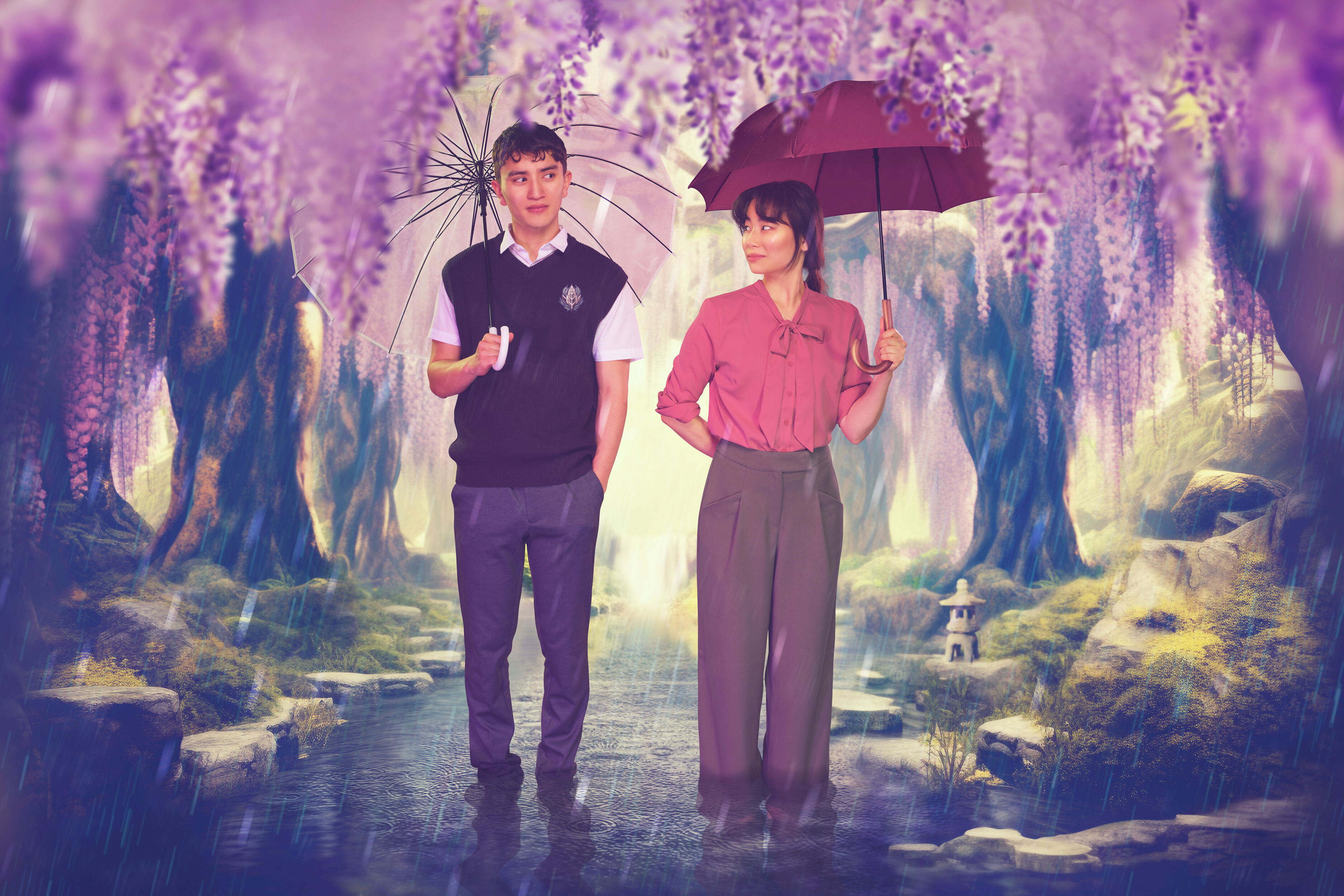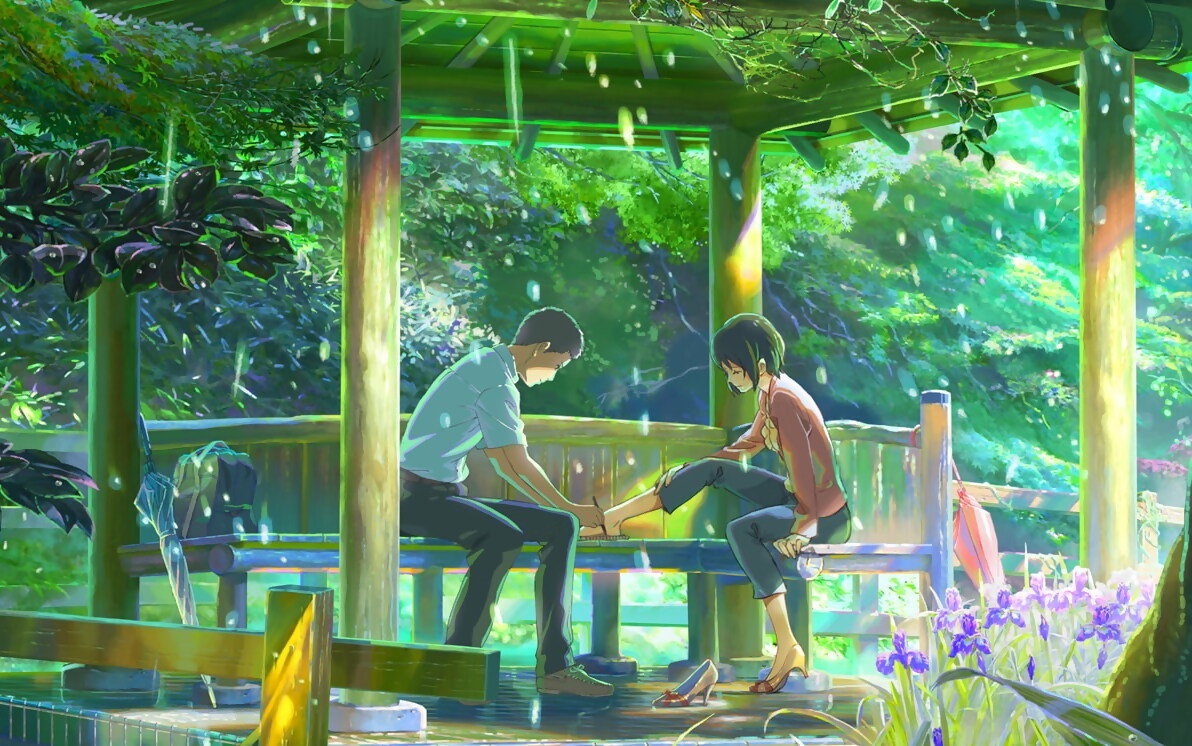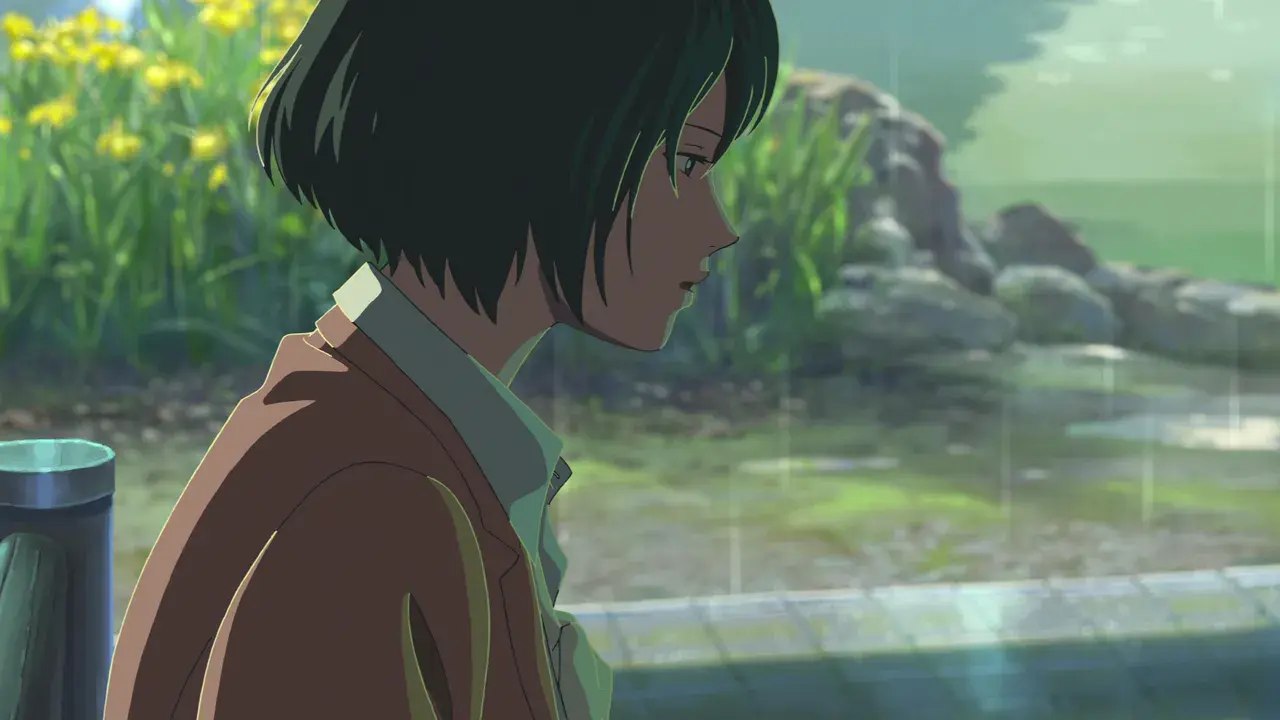
How do you bring the genius of one of the most famed anime directors onto a London stage? Short answers will probably range from ‘With a lot of difficulty’ to ‘You can’t’.
Theatre director Alexandra Rutter was always aware of the trickiness of converting Japanese cultural cornerstones for English audiences, but she chose to make a career of it anyway. Her production company, Whole Hog Theatre, has been showcasing award-winning anime-to-stage projects since 2013, starting with the first play version of Hayao Miyazaki’s Princess Mononoke, with express permission from Studio Ghibli itself.
In 2015, Whole Hog moved to Tokyo with help from the Daiwa Anglo-Japanese Foundation. For eight years, they’ve been developing productions in English and Japanese, teaming up with top creative minds in the Far East. This summer, British theatregoers will be treated to the rainy Tokyo romance tale, The Garden of Words, performed at Finsbury Park’s Park Theatre on the tenth anniversary of the film’s release.
I sat down with Alexandra to ask her about the seemingly impossible challenge of recreating such a location-specific story, in which rain is almost a character in and of itself. How do you bring that to the stage?

Alexandra Rutter has been bringing Japanese anime to world stages for ten years
Alexandra, leaving aside just how daunting a task producing any play can be, what are the main difficulties in adapting something so culturally different when you aren’t native to that culture?
You never really overcome it. You just have to keep working at it. One of the big things is picking the right team. I have five Japanese speakers in my cast and people with Japanese heritage. That makes a massive difference – being able to consult with Japanese people on how the language is coming across and if it works.
And, of course, my co-writer, Susie [Momoko Hingley], is Japanese as well. Trying to get to grips with a new language and culture that you haven’t grown up with, on your own, is terrifying. I wouldn’t be able to understand the nuance at all. But the answer to that problem is to invest yourself completely in it, put in the hours, try and read and instinctual understanding.

The Garden of Words is a story about a lonely teenager (Takao) who skips his morning classes to sit in a tranquil inner-Tokyo garden, where he meets a mysterious older woman (Yukari) who shares his feelings of alienation.
READ MORE: ★★★☆☆ Plan 75 review | Exceptional premise, second-rate execution
A key theme in the story is poetry, specifically Man’yōshū poems (a 1,200-year-old collection of poems written in Classical Japanese). As an English viewer of the film, I found it difficult to follow the shift in narration to poetry whilst watching, knowing I might never be able to understand the true meaning of it as an outsider. How did you decide to communicate this to an English audience?
Almost all of the poems will be in Japanese, with English translations appearing on a screen. There’s something about the poems that just doesn’t translate. It was tough. We asked ourselves, do we anglicise everything and have English actors speaking English? Or do we have English actors speaking Japanese? What about Japanese actors reading out the poems in English? It’s a matter of constantly questioning yourself, and it’s really tough but also fresh ground for new inspiration and trying to figure things out.
We’ve also had to balance getting the sound of Tokyo right, making it feel this is a space that is uniquely in Tokyo rather than anywhere else in Japan.
Because this interpretation has to combine Japanese and British cultural touchpoints, how do you satisfy UK audiences while respecting the Japanese text?
In Japan, when they bring anime to the stage, the adaptations are usually very straightforward. My interpretation is a meeting of these two cultures, and I take up the role of negotiator between Japanese and English cultures. When I’m in Japan, I do it their way to avoid reverse colonialism. I’m on their land, speaking their language. The traditions I bring have to take a backseat.
But when it comes to the UK, they’re relying on us to translate it into a form that will excite and move a British audience. It’s bridging the cultures rather than simply showing on as it is. Otherwise, what would be the point of adapting anything at all?
READ MORE: ★★★★★ Grenfell: In the Words of Survivors review | Essential. Unforgettable.
In most films, TV, and plays, we’re taken on a three- or five-act journey that often ends in a satisfying, wholesome, and happy conclusion. But in The Garden of Words, we’re denied that closure. How did you react when you first watched the movie?
When I first watched the film, I was overwhelmed. It gave me an excuse to be sad. There was something about the physical setting underneath the shelter in the garden [Shinjuku Gyoen National Garden]. This is a lonely space; inside it, things don’t end up happening right for everyone. In English, there’s the term ‘unrequited love’, and in Japanese, the traditional meaning of the word love is ‘koi’, which translates as ‘lonely sadness’. That’s something everybody can identify with.
This is a story about two people living in Tokyo who are lost in their lives. And that’s it. That’s just all it is. Shinkai is a really, really honest filmmaker. We love to draw lines, and it makes perfect sense. We want to know where we are with everything because it makes us feel comfortable, but Shinkai cuts through that. He understands that humans aren’t grey, they’re messy, and they’re complicated, and there will be more questions in life than there are answers. Another film that does this well for Western audiences is Lost In Translation. It’s famous for nothing happening in it, which is brilliant.
And in light of the pandemic, that’s all so much more relevant now than when we initially intended to stage it back in 2020. Being on your own and feeling that loss is much more familiar now to everybody.

The Garden of Words explores how loving feelings can often go hand-in-hand with loneliness
READ MORE: Have we lost the art of making movie trailers?
Rain is a really dominant presence in the film. Takao, the main character, tells us at the start that rain makes the sky feel closer and the world smaller. How have you physically imported this theme into a theatre?
It was so important because it’s pivotal to how you experience the film. We’ve had to work through every way we can create a sense of rain. With movement, with our actors, that feeling of being in the rain, the tactile joy, with sound design. How many different ways can you hear the rain under an umbrella?
We’re adapting from the anime and the novel, bringing those worlds together. There’s an incredible description in the book where Takao goes into the park under an umbrella, becoming a sounding drum of noise. We’ve chosen to focus on those moments, so we’ve deliberately scripted weather changes. We’ve developed a highly theatrical visual language that makes you feel what you feel when you’re in the rain. It’s sound design, movement, prop play, projections, and lighting. That’s our palette.
The Garden of Words is playing at the Park Theatre from 10 August until 9 September. Standard tickets £22.50 – £44.50.




